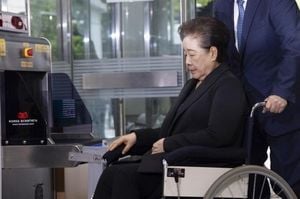San Francisco’s real estate scene is undergoing significant changes, with many early-stage technology startups opting to bring their employees back to the office, moving away from the remote work model popularized during the pandemic. This shift has coincided with new opportunities presented by the city’s particularly high vacancy rates and the lowest lease prices seen since 2016.
Interestingly, many young professionals, especially those from Generation Z, are expressing their desire to be part of an engaging office culture, as demonstrated by Noah Jackson, who began his job search with this one criteria. Jackson, like many people his age, had mostly worked from home since the onset of the pandemic. He eventually found his intended workplace, Tako, which mandates four days of office presence per week, recalling, “Being fully remote feels like it’s just like a thing you have to do, not something you can enjoy.”
The desire for collaboration and innovative creation spurs companies like Tako, whose CEO, Alex Rosenberg, articulated the difficulty of generating new ideas over platforms like Zoom: “When you’re trying to invent something new, it's really hard to do it over Zoom.” Operating currently out of Pacific Heights, Tako is actively seeking larger office space, indicative of the growing competition among startups aiming to establish themselves.
Even amid the overall tepid state of the San Francisco office market, where vacancy rates hit 34.9%—up from 29.4% just one year prior—there are bright spots, especially among artificial intelligence (AI) companies. Renowned firms like OpenAI and Sierra AI recently signed some of the largest leases, illustrating the burgeoning appetite for office space fueled by the AI boom. According to Liz Hart, the North America president at Newmark, tech companies have accounted for 72% of the total office leasing activity so far this year.
Since March 2023, there has been a marked shift toward short-term leases, with startups opting for sublease spaces. This trend showcases how the pandemic reshaped the commercial real estate dynamics within the city. Hart pointed out, “More offices are being divided up to serve multiple startups now instead of leasing entire floors to single companies.” This approach offers greater flexibility for early-stage companies often struggling with high rental costs.
Current conditions certainly favor entrepreneurs, with Alex Rosenberg reflecting on the varied real estate options available today. “If you are talking to entrepreneurs who are just starting to scale, they are likely taking more space than they immediately need and getting incredible deals,” said Hart. This situation stems from the fact many high-profile tech companies remained cautious about reopening fully, resulting in surplus space.
Some industry watchers argue the broader commercial real estate recovery will hinge on significant players like Salesforce and Google, as their return to traditional work could help revitalize demand. While Amazon has resumed full operations, other tech giants have not cemented any such plans for their respective offices.
Meanwhile, startups continue to thrive on creativity and flexibility within the rental market. Zach Tratar, founder of AI firm Embra, recounts how he seized the opportunity to lease prime office space by reacting swiftly when he was alerted to its availability. Being so proactive allowed him to secure the lease at potentially half the cost compared to pre-pandemic rates.
At the same time, Tratar emphasized the importance of fostering team dynamics within the workplace, asserting, “When one thing goes well, it adds energy to the system, which excites everyone.” The notion of strengthening workplace culture resonates with numerous Bay Area professionals, especially for those just starting their careers.
It is important to note, though, the challenge companies face as expectations around hybrid and remote work have become firmly established. Work culture expert Y-Vonne Hutchinson pointed out the difficulty of transitioning back to having employees work on-site. She stated, “When companies make drastic changes, you erode trust… This is especially tough for parents and those with longer commutes. It reduces the hiring pool significantly.”
Michelle Lee, CEO of robotics startup Medra, echoes similar sentiments. Since launching, Medra has required all employees to work onsite five days per week. While this has streamlined their operations, Lee acknowledges many peers are hesitant about reverting to such demanding structures. She relayed her experience of recruiting one notable senior engineer who was actively seeking companies with strict office attendance policies. Lee recalled thinking, “This guy is amazing. It would have been tough to recruit him otherwise without our commitment to physical collaboration.”
The balancing act of maintaining workplace culture amid these transitional periods plays a pivotal role for many startups. Companies now more than ever must be strategic about their office locations, prioritizing access to public transport and nearby amenities like cafes to appeal to their workforce.
Each of these stories weaves together to paint a broader picture of the San Francisco real estate market, the multifaceted approaches startups are implementing, and the intense competition for prime office space. The tech industry, driven by the renewed vigor of AI development, shows signs of life, even as more traditional office dynamics remain uncertain.
It seems there’s some new momentum building within the city’s hustle and bustle, kindled by fresh opportunities and the desire for connection and collaboration.



